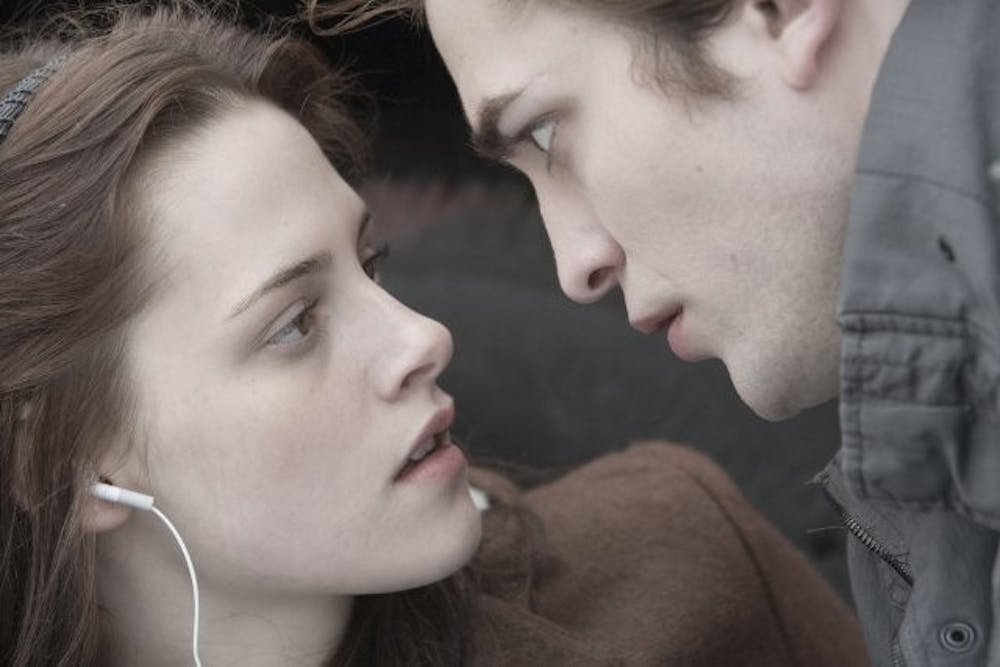Jealousy is natural in any relationship. We all feel it at times, no matter how long we've been with our partner or how trustworthy they are as a person. Those ever-elusive, nagging thoughts pass through everyone's brain on occasion. Who keeps texting her phone? Why is he always talking about Kathy from work? If that waiter looks over here one more time...
In moderation, jealousy can be a manageable, perhaps even healthy, part of a romantic relationship. However, what was once a normal quirk has quickly spiraled into controlling, unhealthy relationships.
How do I know this? All you have to do is log onto Twitter and search "when your (insert: boyfriend or girlfriend) is crazy" and you will soon find dozens upon dozens of posts glamorizing distrustful partners. Red flags that should send any sane person running for the hills are now welcomed with open arms and heart-eyed emojis.
My type of guy pic.twitter.com/CZxEcObgM2
— Baseada Princesa (@mariaisab3lla) October 26, 2015
When did trust in a relationship go out the window? Why is it attractive to be with someone who watches your every move, constantly doubts you and tries to control you?
Proclaiming someone you date as "bipolar" or "crazy" isn't cute. Not only does it trivialize people who actually suffer from bipolar disorder, but it normalizes behavior that shouldn't be deemed attractive.
Honestly, I blame "Twilight." I'm not kidding.
Although I'm sure that behavior like this dates back way before those wretched, bane-of-my-existence books were published, I firmly believe that the "Twilight" saga by Stephenie Meyer (and other books like it) have played a huge role in establishing the notion that a controlling boyfriend is attractive.
a female that loves u will go off on u & 10 minutes later wanna be right back under u. u girls are crazy, But we love y'all crazy asses tho
— Ugly But I'm Loyal (@DaOfficialTrell) November 3, 2015
Throughout the saga, the protagonist's vampire boyfriend, Edward Cullen, constantly exhibits behavior that is abusive and harmful. Edward breaks into Bella Swan's house and watches her sleep without permission in "Twilight" (before they are even dating), won’t allow her to see friends in "Eclipse" (her best friend and his potential rival, Jacob Black) and forcibly controls her actions all throughout the series (going so far as to damage her car so she can't leave and hiring his sister to hold her hostage).
Despite these clear flaws, Bella is completely in love with and utterly devoted to Edward, thus convincing young girls reading the novel that Edward’s behavior is acceptable and even attractive. Stephanie Meyer created a distorted version of a romantic relationship that is a bad influence on young girls and can place them emotionally and physically in danger as they pursue real-life relationships with boys who don't sparkle.
When your boyfriend is equally as crazy as you #CrazyCouples pic.twitter.com/RMgqttF3dn
— ᴬᴺᴰᴿᴱᴬ (@twerk4jordan) September 6, 2015
The trilogy, "Fifty Shades of Grey" by E.L. James, is another prime example of romanticizing what should be seen as abusive behavior. James admitted several times to having been inspired by those vampire books herself in writing "Fifty Shades." However, relationships that involve BDSM are all about consent and mutual respect between both parties. Ahem, or so I've been told, of course...
A study published in the Journal of Women's Health analyzed frequent accounts of emotional abuse and sexual violence in the novels. According to the study, Christian Grey abuses the female protagonist in every way, from tracking Anastasia's whereabouts and limiting her social contact, to ignoring Anastasia's requests for boundaries and using alcohol to compromise her consent.
But he's so dreamy? But he loves her? But he's just misunderstood? But? But? But?
If you're into BDSM or supernatural beings, hey, that's none of my business. But what both of these series showcase are just glorified, dolled-up versions of abuse. They only contribute to an already crooked view of what's OK in dating.
Some jealousy is justifiable, and some is just outright paranoia. I understand that jealousy usually comes from a good place -- loving your partner and being afraid to lose them. No one wants to see flirty comments under their boyfriend's Instagram posts or risqué messages in their girlfriend's direct messages. No one wants to feel like they are competing for their partner's attention. However, if your partner's jealousy turns into abuse or control, then it's time to reevaluate the relationship and move on. You deserve and can find better.
Reach the columnist at nlilley@asu.edu or follow her on Twitter @noelledl_
Editor’s note: The opinions presented in this column are the author’s and do not imply any endorsement from The State Press or its editors.
Want to join the conversation? Send an email to opiniondesk.statepress@gmail.com. Keep letters under 300 words and be sure to include your university affiliation. Anonymity will not be granted.
Like The State Press on Facebook and follow @statepress on Twitter.




